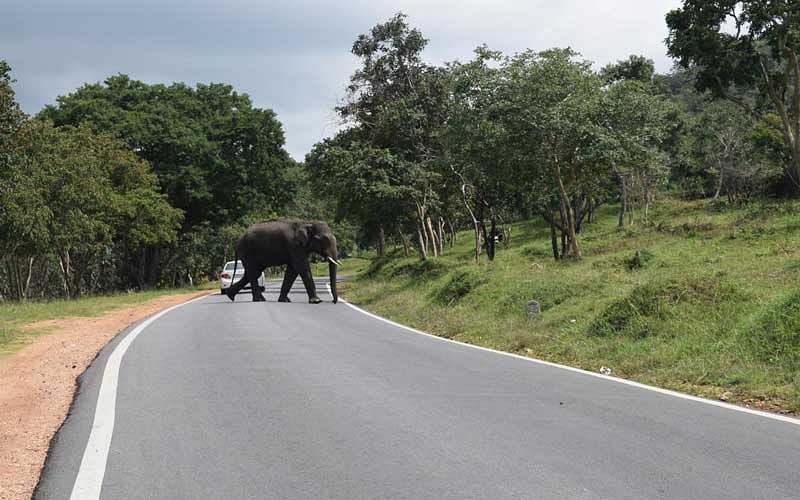Amid a fresh row around the night traffic ban on the NH-766 stretch through Bandipur Tiger Reserve in Karnataka, Kerala is set to reiterate its demand to revoke the ban in the Supreme Court.
The Kerala government will continue to base its official position on the argument that the ban hampers the economy of Wayanad and other northern districts and the alternative route (Hunsur–Gonikoppal-Kutta–Mananthavady) inconveniences inter-state travellers. Transport Minister A K Saseendran has already termed “disappointing” Karnataka’s move back to its original position to continue the ban.
Experts feel that two unrelenting parties would make a solution elusive. Kerala’s position is in conflict with the views of the National Tiger Conservation Authority (NTCA), which along with the states of Karnataka, Kerala and Tamil Nadu, was represented in a Supreme Court-appointed expert committee that studied the issue. The NTCA has said since the ban was implemented in 2010, wild animals including tigers, elephants and gaur had behaviourally adjusted to the restricted traffic (between 9 pm and 6 am) which was beneficial to the long-term conservation of these species.
Kerala’s stand also assumes importance after a proposal by the Ministry of Road Transport and Highways (MoRTH) to lift the ban, while minimising disruption to wildlife.
The Kerala government, as it backs talks with Karnataka, has also indicated support for alternative measures including the MoRTH recommendations. P S Easa, former head of Kerala Forest Research Institute and member of National Board for Wildlife, says construction of elevated corridors – as mooted by MoRTH – on the stretch could severely affect wildlife. “You are talking about disrupting a habitat and reducing it to a corridor, all to divert wildlife. That’s not a solution,” he told DH. Easa, however, recommends convoy-based, limited entry of vehicles during nights.
“Ultimately, it’s about looking at the larger picture and finding a common ground. Instead of seeing a Karnataka tiger or a Kerala tiger, we just need to see the tiger,” he said.
The Nilgiri-Wayanad NH and Railway Action Committee which had, along with the Kerala Government, moved special leave petitions in the Supreme Court seeking withdrawal of the ban, said the MoRTH recommendations were “remedial measures”.
“The proposal to have four elevated corridors in the Karnataka stretch and one in Kerala could be followed up. We are sensitive to concerns about ecology and wildlife, but are only proposing a middle path,” T M Rasheed, convenor of the committee, said. Rasheed said the ban severely restricted movement from Wayanad to Mysuru and Bengaluru, hampering the region’s economy and choking what he called its “lifeline”.
C K Saseendran, CPM MLA from Kalpetta, said there “were no two opinions” on the importance of wildlife conservation, but argued that viable restrictions and not a complete ban should be the way forward.
